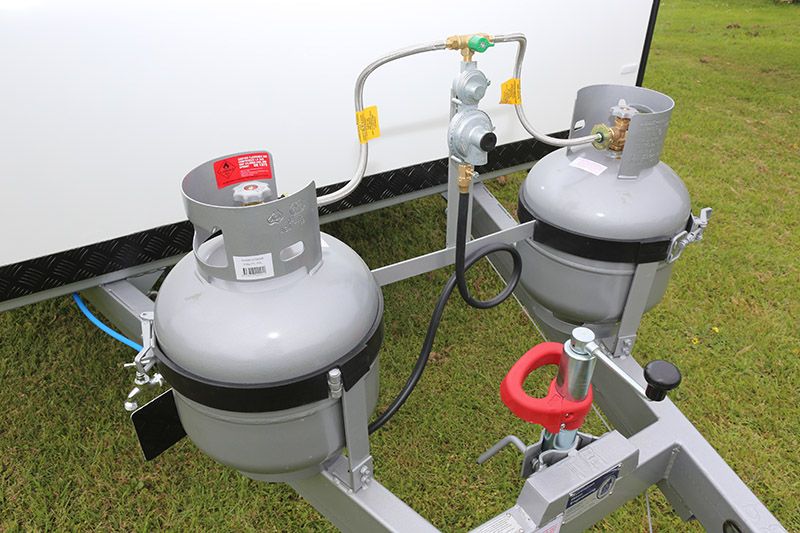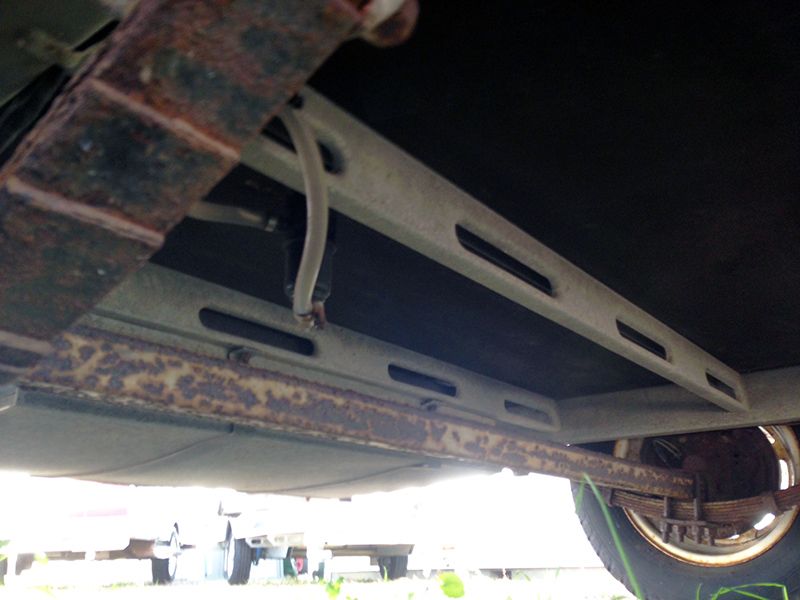No matter how enthusiastic you are, or how developed your DIY skills, there are some jobs that shouldn’t be tackled by the home handyman.
And that includes certain caravan repairs and maintenance jobs.
[If you like this article, Like Go RV on Facebook!]
It should go without saying that unless you are a licensed gas fitter, you should not work on a caravan’s gas system beyond checking for leaks at connection points using a soapy spray. The same needs to be said about a caravan’s 240V electrical system. While regulations do not require specific qualifications to work on a 12V system, it’s a different story altogether when it comes to 240V. Are you not a licensed electrician? No? Then put down that screwdriver and back away from your caravan’s RCD.
Unfortunately, common sense doesn’t always prevail. Go RV caught up with Andrew Phillips of The RV Repair Centre and owner of Coronet Caravans to discuss what can and can’t be done by DIYers.
WHEEL BEARINGS
In theory, yes. Caravanners can check the state of their van’s wheel bearings by feeling the hubs after a good drive down the highway. If they are excessively hot, then they are probably on their way out. Additionally, jacking the wheel up, fitting a properly rated automotive stand, and then rocking the wheel back and forth will provide a clue as to the condition of the bearing. If there is play in the wheel, the bearing’s not long for this world.
Only truly mechanically-minded people should attempt to change a wheel bearing, however.
BRAKES
The state of a van’s brake pads can certainly be checked by a mechanically-minded DIYer but it’s recommended to have a professional change them. Frankly, the cost is minimal compared to the peace of mind you’ll get from knowing the job was done by someone with years of experience.
GAS SYSTEM
 Make a habit of checking for gas leaks by spraying gas connection points with a soapy solution. If bubbles appear, there’s a leak. Shut off the gas system and see a specialist. Do not attempt to fix the problem yourself. As part of a caravan service, a specialist will have the equipment to check the gas lines, too.
Make a habit of checking for gas leaks by spraying gas connection points with a soapy solution. If bubbles appear, there’s a leak. Shut off the gas system and see a specialist. Do not attempt to fix the problem yourself. As part of a caravan service, a specialist will have the equipment to check the gas lines, too.
ELECTRICAL SYSTEM
Change blown 12V fuses by all means, and feel free to run a new speaker cable or two if you are confident to do so. But under no circumstances should you interfere with the 240V system unless you’re a licensed electrician.
A caravan specialist will be able to load-test the van’s battery, giving you a good indication of the life left in this important piece of equipment.
SEALING
Yes. But there is an important caveat here. According to Andrew Phillips, too many people attempt to reseal their caravan without preparing the aluminium properly first. The result: the new sealant doesn’t take properly, eventually leading to water ingress. From there, it doesn’t take too long for rot to set in.
UNDERCARRIAGE
 The average DIYer can easily check their van’s chassis for signs of rust and cracking, etc., and likewise the springs. Adjustments to the suspension should only be carried out by experienced or mechanically-minded people.
The average DIYer can easily check their van’s chassis for signs of rust and cracking, etc., and likewise the springs. Adjustments to the suspension should only be carried out by experienced or mechanically-minded people.
CORNER STABILISERS
Go for it. There’s very little for you to accidentally damage here. Simply check that the bolts are tight and that they stabilisers wind smoothly up and down.
WINDOW RUBBERS
Like the corner stabilisers, there’s little risk here. If a window rubber needs to be replaced, the average DIY can confidently do some research and have a go themselves, knowing that if it goes pear-shaped they can always call in an expert.






I’m grateful for your advice about when to hire a repair service for a caravan. In my opinion, I think that it’s important to find out if the caravan does have a problem, like checking for gas leaks, and if it does, then leave the problem to a professional who specializes in caravan repairs. By letting the specialist handle the repairs, they can finish the job properly and with the proper equipment as well.
Great article. We have been servicing caravans for over 10 years and we highly recommend having an experienced caravan repairer look over your RV annually or more if you travel more than 10,000km in a one year period. For peace of mind, many of our clients see to have pre-holiday inspections performed on their RV’s which involves everything that you have mentioned in this article and more. Thanks again for sharing.
It got me when you said that preparing aluminum first is important when receiving your caravan. I can imagine how important it is to leave caravan repairs professional so that the proper processes are done. My brother should know about this because he was able to buy a secondhand vehicle that he will use in the summer of next year, but it needs some fixing because he was able to buy it at a very low price.